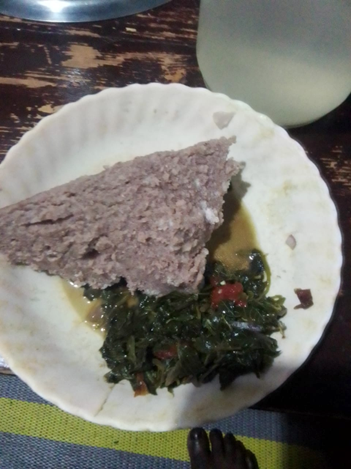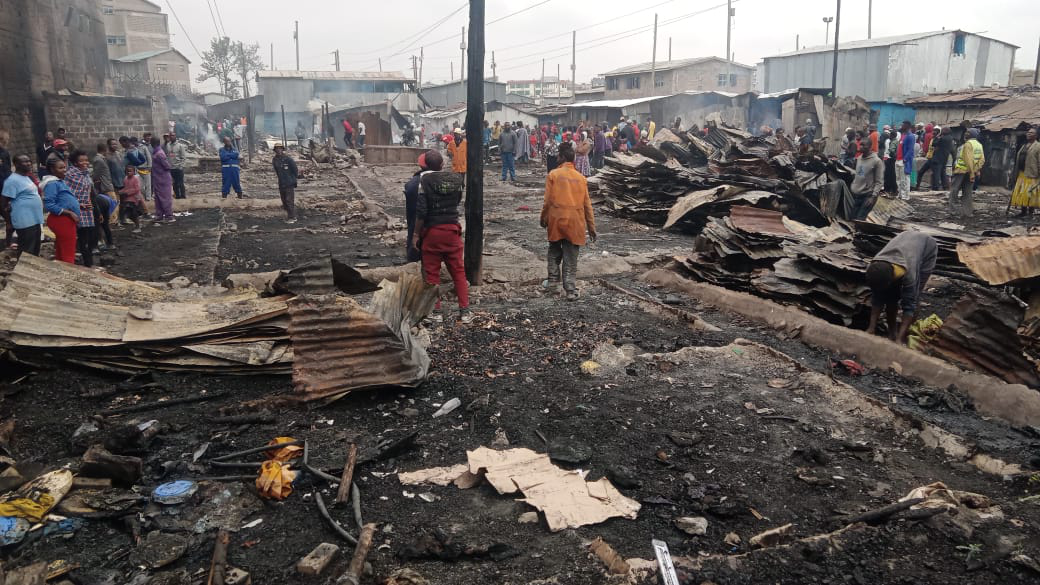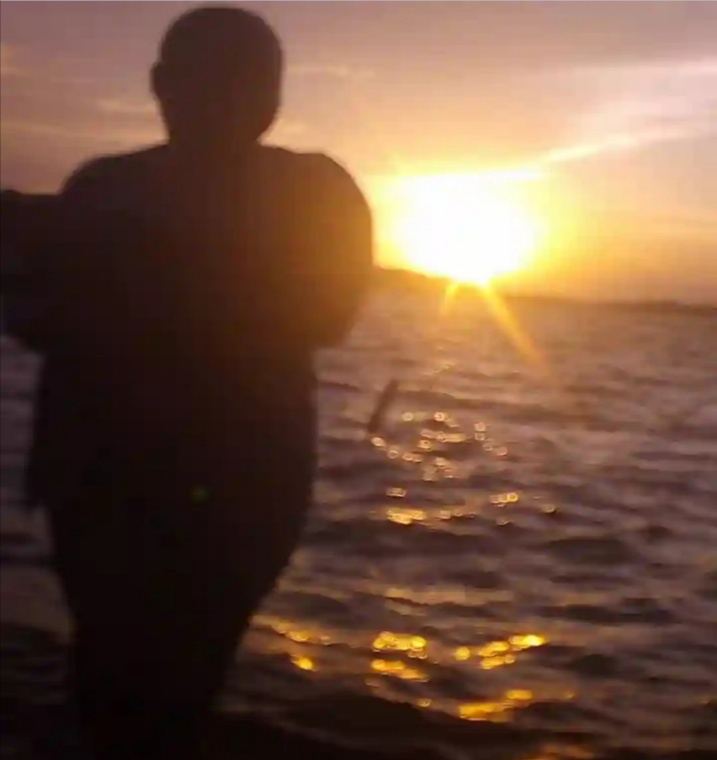Mercy* is a Community Health Promoter (CHP) in Viwandani, an informal settlement in Nairobi, Kenya. The name Viwandani, which means “Industries” in Kiswahili, reflects the settlement’s proximity to numerous factories. It is a place known for its bustling workforce, narrow pathways, and a maze of loosely hanging electrical wires—some dangerously exposed. Navigating these precarious conditions is a skill on its own, and for CHPs like Mercy, it’s just one of the many daily challenges they face.
The Backbone of Primary Healthcare
Globally, Community Health Workers (CHWs)—now referred to as CHPs in Kenya—are the lifeline between informal communities and formal healthcare systems. In low-resource settings, they are often the only accessible health providers for many urban and rural poor. In September 2023, the Kenyan government rebranded CHWs as CHPs, making them the key drivers of Universal Health Coverage. Each CHP is responsible for at least 100 households, visiting them to promote health awareness and prevent diseases. However, for Mercy, this number has increased to 117 households following the devastating floods of August 2024, which left many CHPs displaced and communities in turmoil.
Despite their critical role, CHPs remain overworked, underpaid, and largely unrecognized, facing immense emotional and financial strain. The mental toll of their work is often overlooked, yet emerging evidence from Africa and Asia highlights the severe stress they endure due to excessive workloads, inadequate training, and insufficient compensation.
The NHIR-SHINE Study: A Glimpse into the Lives of CHPs
Mercy is among the 14 co-researchers participating in the NHIR-SHINE study, a collaborative initiative led by LVCT Health in Kenya, APHRC, BRAC in Bangladesh, and LSTM in the UK. This study seeks to explore the strengths, challenges, and opportunities for enhancing CHPs’ mental well-being in low- and middle-income countries.
Utilizing mixed methods, including surveys and Community-Based Participatory Research (CBPR) approaches such as Photovoice, Narrative Timeline Interviews, and Body Mapping workshops, the study captures the realities of CHPs’ lived experiences. Through Photovoice, Mercy has visually documented the challenges and motivations that shape her daily work. Her images tell a story of resilience, hardship, and hope.

“What motivated me to take this picture was the realization that, as a volunteer caregiver, I couldn’t provide a balanced diet for my own family. It hurt me a lot because I am the one who goes out to teach others about healthy eating, yet I can’t afford it for my own children. It causes me so much stress.”
Mercy’s struggle is not unique. A report by the African Cities Research Consortium (ACRC) highlights that residents of informal settlements suffer from malnutrition, stunted growth, and micronutrient deficiencies due to food insecurity. The paradox is painful—those tasked with promoting nutrition are often the ones struggling to afford it.
With meagre earnings, CHPs like Mercy are forced to take up side jobs, hoping to supplement their income. Some days they find work; other days, they don’t. The stipend they receive is barely enough to survive, yet they continue serving their communities with unwavering dedication.
In Mercy’s case, the preacher who preaches wine ends up drinking water! This causes significant stress to Mercy as she helplessly watches her young family feed an unbalanced diet due to her financial limitations. “This condition exists because, as a CHP, the income I receive is very little, so I have to push myself to find other side jobs to supplement the stipend I get. Sometimes I manage to find extra work, and sometimes I don’t, and whatever I earn from that is what I use to provide for my children at home. So, the little we earn as CHPs also contributes to this situation.” She speaks.
Living in Constant Fear: The Burden of Uncertainty
Anxiety has become a constant companion for many CHPs, exacerbated by unsafe living conditions. Studies show that chronic anxiety not only affects mental health but also has severe physical consequences. The fear of losing everything at any moment adds an emotional burden to an already overwhelming job.

“…the houses got burned. [Pauses] What this represents to me is the fear that I can leave home to work, only to return and find everything I own is gone. Every time I leave, even now as I’m here, I worry if I will find my things intact when I return.”
In Mercy’s community, fires frequently break out due to poor infrastructure, illegal electrical connections, and unsafe cooking practices. The lack of proper roads makes it nearly impossible for emergency services to respond in time.
“The biggest challenge is our infrastructure. Fire engines can’t access our homes when there’s an emergency. Most power connections are illegal, done by people without proper training, making it even more dangerous.”
An Overwhelming Workload: A System Pushed to the Brink
A 2024 systematic review on CHW workload and supervision in Indonesia revealed that many felt burdened by unrealistic workloads, disproportionate responsibilities, and inadequate incentives. The situation is no different in Kenya.
Although the Primary Health Care Act (2023) outlines CHPs’ roles, many find themselves drowning in additional, unofficial tasks. Mercy’s experience is a testament to this:
“As CHPs, we’ve been given so much work, yet our pay is so little. We are told to volunteer for two hours, but that’s impossible. We have to visit 33 households per month, collecting data on everything from child nutrition to maternal health. If one household has five people, we attend to all of them. By the end of the month, we’re exhausted, unable to look for other jobs, and surviving on a stipend that barely covers a meal for our children.”
The excessive workload, coupled with financial strain, takes a heavy toll on CHPs’ mental well-being. They find themselves stretched thin, juggling between serving their communities and meeting their own basic needs.
The Way Forward: A Call for Action
Mercy’s story is not an isolated case—it is the reality for thousands of CHPs across Kenya and beyond. To safeguard their mental well-being and improve healthcare outcomes, urgent interventions are needed:
- Realistic Workload Planning: Policymakers must ensure CHPs’ responsibilities are manageable, allowing for a proper work- life balance.
- Fair Compensation: Adequate stipends and financial incentives should be provided to sustain CHPs and their families.
- Supervisory Support & Mental Health Services: Structured debriefing sessions and one-on-one counselling should be integrated into CHPs’ schedules.
- Infrastructure Improvement: Informal settlements need better roads, safer electrical connections, and accessible emergency services.

“I love going to watch the sunset because it makes you reflect on how life and nature are beautiful. Yeah, despite all the challenges you may be going through in life, the sunset reminds you that even though today is ending, tomorrow will bring a new day, new opportunities.””
CHPs are the backbone of Kenya’s primary healthcare system. Investing in their well-being is not just a moral obligation but a strategic move towards strengthening healthcare for all.
*Mercy’s name has been changed to protect her identity.
Blog by Patricia V. Okoth
